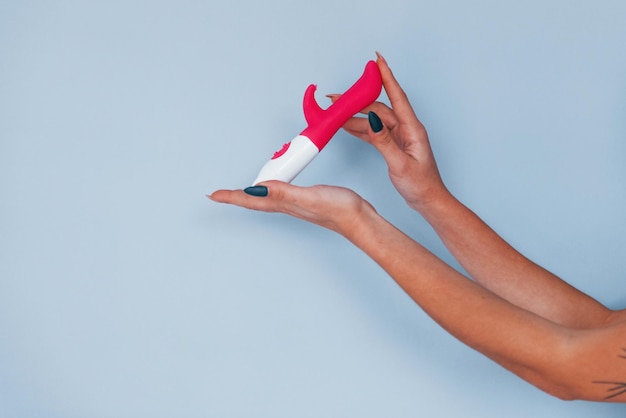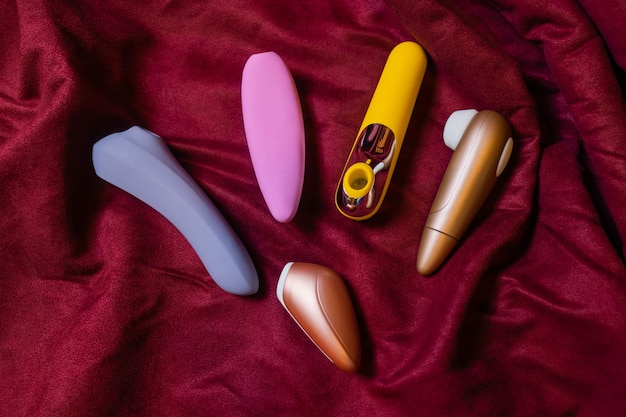Proper Cleaning Techniques
Maintaining the cleanliness of intimate items is paramount for both health and enjoyment. Different materials require specific cleaning methods to ensure their longevity and safety. For non-porous materials, a simple solution of soap and water often suffices. This straightforward approach is both effective and economical, much like how outsourcing administrative tasks can streamline business operations without breaking the bank.
Boiling non-motorised toys made from suitable materials is another viable option. This method provides a thorough clean, eliminating potential harmful microorganisms. It’s reminiscent of how outsourcing can ‘clean up’ a company’s workflow, removing inefficiencies and allowing businesses to focus on their core competencies.
UV-C sterilisation is a modern approach that’s gaining popularity. This method uses ultraviolet light to destroy bacteria and viruses, offering a hands-off cleaning solution. Similarly, outsourcing administrative tasks provides a hands-off approach for businesses, allowing them to benefit from expert handling without direct involvement.
When it comes to porous materials, gentler methods are necessary. Using mild soap and avoiding harsh chemicals helps preserve the integrity of these more delicate items. This careful approach mirrors how outsourcing partners handle sensitive business information, ensuring it’s managed with care and discretion.
Handling Electrical Components
Electrical components require special attention during cleaning. It’s crucial to remove batteries before any cleaning process begins. This precautionary step is akin to how businesses should carefully consider which tasks to outsource, removing potential risks before proceeding.
Surface cleaning with a damp cloth is often the safest method for electrical items. This gentle approach ensures cleanliness without risking damage to internal components. In the business world, this could be likened to how outsourcing partners carefully handle a company’s data, ensuring it’s ‘cleaned up’ and organised without compromising its integrity.
Avoiding water submersion is critical for electrical items. This principle of keeping sensitive components away from potentially damaging elements is similar to how outsourcing can protect a business from unnecessary exposure to operational risks.
Optimal Storage Practices
Proper storage is key to maintaining the quality and longevity of intimate items. A cool, dry environment is ideal, much like how a well-managed outsourcing partnership provides a stable, controlled environment for business processes.
Protecting items from direct sunlight helps prevent degradation of materials. This protective approach is reminiscent of how outsourcing can shield a business from the harsh ‘sunlight’ of market pressures, allowing it to focus on growth and innovation.
Individual storage solutions for different items ensure they remain in optimal condition. This organised approach mirrors how outsourcing can help businesses compartmentalise different aspects of their operations, ensuring each receives the attention it deserves.
Preventing material degradation through proper storage is crucial. This foresight in care and maintenance is similar to how outsourcing can help prevent the degradation of business processes, keeping operations smooth and efficient over time.
Safe Sharing Practices
When it comes to shared items, safety is paramount. Using protective barriers like condoms is a must. This practice of creating a protective layer is similar to how outsourcing can provide a protective buffer for businesses, shielding them from potential risks and liabilities.
Thorough cleaning between users is non-negotiable. This rigorous approach to hygiene is akin to how reputable outsourcing partners maintain strict data hygiene practices, ensuring that information is ‘cleaned’ and properly handled between different processes or clients.
The importance of hygiene in shared use cannot be overstated. This principle of maintaining cleanliness and safety in shared environments is reflected in how outsourcing partners maintain high standards of professionalism and integrity when handling multiple clients’ needs.
Essential Care Tips
Following manufacturer guidelines is crucial for proper care. This adherence to expert advice is similar to how businesses benefit from following the guidance of experienced outsourcing partners, who bring industry-specific knowledge to the table.
Choosing body-safe cleaning products is essential for health and safety. This careful selection process is reminiscent of how businesses should choose their outsourcing partners, ensuring they’re ‘safe’ for the company’s needs and aligned with its values.
Cleaning frequency and timing are important considerations. Regular maintenance keeps items in top condition, much like how consistent engagement with outsourcing partners keeps business operations running smoothly.
Proper drying and moisture prevention are key to avoiding potential issues. This attention to detail in care mirrors how outsourcing can help businesses avoid potential pitfalls by providing meticulous attention to often overlooked aspects of operations.
Material Compatibility Considerations
Understanding the materials used in intimate items is crucial for proper care. This knowledge allows for informed decisions about cleaning and maintenance. Similarly, understanding the intricacies of one’s business allows for informed decisions about which tasks are suitable for outsourcing.
Selecting appropriate cleaning products based on material compatibility is essential. This thoughtful approach to product selection is akin to how businesses should carefully select outsourcing partners that are compatible with their specific needs and company culture.
Avoiding damage from incompatible cleaners is crucial for maintaining item quality. This principle of avoiding harmful interactions is similar to how businesses should avoid outsourcing arrangements that might be incompatible with their operations, potentially causing more harm than good.
Maintaining Toy Longevity
Regular maintenance routines are key to extending the life of intimate items. This consistent care mirrors how regular engagement with outsourcing partners can help maintain the longevity and efficiency of business operations.
Identifying signs of wear and tear is important for timely replacement or repair. This proactive approach to maintenance is similar to how businesses should regularly assess their outsourcing arrangements, identifying any areas that may need adjustment or improvement.
Knowing when to replace items is crucial for both safety and enjoyment. This ability to recognise when something has reached the end of its useful life is akin to how businesses should be able to recognise when certain in-house processes have become inefficient and would benefit from being outsourced.
Health and Safety Aspects
Preventing infections and irritations is a primary concern in intimate item care. This focus on health and safety is reflected in how reputable outsourcing partners prioritise data security and compliance, preventing ‘infections’ in the form of data breaches or regulatory issues.
Allergic reaction awareness is important when selecting and using intimate items. This consideration of individual sensitivities is similar to how businesses should be aware of their unique needs and potential ‘allergies’ to certain outsourcing arrangements.
The importance of personal hygiene extends beyond just the care of intimate items. This holistic approach to cleanliness is reminiscent of how outsourcing can contribute to the overall ‘hygiene’ of a business, cleaning up inefficiencies and promoting a healthier operational environment.
In conclusion, the care and maintenance of intimate items require attention to detail, regular upkeep, and a good understanding of materials and cleaning methods. These principles of diligence, consistency, and knowledge apply equally to the world of business administration outsourcing. By applying similar levels of care and consideration to their outsourcing strategies, businesses can ensure they maintain healthy, efficient, and productive operations.


